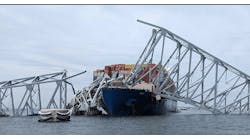The next time you go to a concert try to appreciate the artistry that went into developing the talents and sounds coming from the stage. The talents can be traced to a combination of family backgrounds and genetics. The sounds are attributable to good musicianship and a global supply chain of the best materials that, when assembled by artisans and delivered into the right hands, produce tones that can't be found anywhere else.
Add politics to this delicate recipe and the whole thing can collapse like a bad souffle.
That's what's happening in this Gibson Guitar debacle I wrote about in my last blog. Gibson imports wood from other countries and assembles their instruments in its Tennessee factories. Last August, Federal agents raided these facilities because of a suspected breach of the Lacey Act. This piece of legislation, originally introduced in 1900 to stop the trade of illegal wild game, was expanded to cover a range of endangered species, both plant and animal. That includes trees—the wood from which goes into thousands of products and byproducts that travel countless global supply chains. It was this complex lineage that made Congress think long and hard before passing this amended legislation.
Over the weekend, the Wall Street Journal reported that other companies like Ikea struggle with this legislation as well, noting that even if the company could comply with Lacey, “the administrative costs and record-keeping requirements would cause its furniture prices to skyrocket,” thanks to the need to trace the origins of every piece of wood that goes into its particle-board.
Ordinarily I would say, that's tough, Ikea, but if you have endangered—and therefore illegal—trees in that mix of wood chips, policing your product sourcing is the cost of supply chain management. But in Gibson's case, they're not even being accused of dealing in banned wood. In fact they've proven they sourced the Indian ebony legally. As I mentioned in my last blog, the issue is how “finished” the wood was, according to Indian law.
With plant products being added to the Lacey Act's scope, supply chain policing has become so complex that it's not only keeping federal agents busy, but green special interest groups and corporate attorneys are lumbering over Lacey as well. My blog even inspired some heartfelt debate from MH&L's audience. One reader responded that Gibson's getting permits and following foreign laws isn't enough.
“Foreign laws govern other countries and U.S. law governs the U.S., where Gibson brought the wood,” he wrote. “It is entirely possible that U.S. importing regulations were violated and that appropriate taxes were not paid as a result. … It is too easy to point at an enforcement action and say the infraction is not significant enough to pursue. But a law is a law and there are penalties for breaking them.”
So, did Gibson adhere to U.S. law when importing the wood? The fact that the company hasn't even been charged yet leads to the conclusion that it's inconclusive. The sticking point seems to be over how “finished” the wood was before leaving India. And according to WSJ, the prime mover behind the Lacey expansion was a British special interest group called the Environmental Investigation Agency, an organization whose apparent goal is to make global sourcing of these plant and animal materials less attractive and to convince manufacturers to deal more locally—in regions over which this organization has more influence on green practices.
In the meantime, Gibson is paying for this lesson in supply chain law via attorney fees and production stoppage—and it won't be lost on other U.S. importers in other industries, either. And that's probably the best thing that could come of all this. The lesson is, it's every supply chain manager's job to stay on top of the politics and rationale behind international trade laws. Sure, follow the raw materials in your products to their source and make sure no compromises to human dignity or environmental integrity were made. But equally important, follow the special interests to their sources. In short, follow the money.


